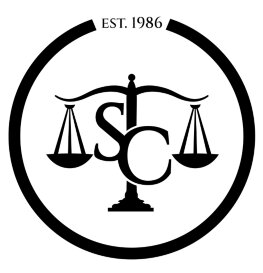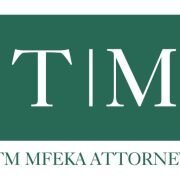Best Domestic Violence Lawyers in Pietermaritzburg
Share your needs with us, get contacted by law firms.
Free. Takes 2 min.
Free Guide to Hiring a Family Lawyer
List of the best lawyers in Pietermaritzburg, South Africa
About Domestic Violence Law in Pietermaritzburg, South Africa
Domestic violence in Pietermaritzburg, as in the rest of South Africa, is recognized as a serious and pervasive issue that affects individuals across all demographics. The South African government firmly categorizes domestic violence as a crime, seeking to provide protection and support to victims through various legal frameworks. The Domestic Violence Act 116 of 1998 serves as the primary legislative instrument aimed at offering swift and effective legal recourse for victims of domestic abuse. In Pietermaritzburg, victims have access to support services and legal avenues to ensure their safety and wellbeing.
Why You May Need a Lawyer
Legal assistance may become crucial when dealing with domestic violence cases in several scenarios. Victims often require guidance in obtaining protection orders or navigating the court processes involved in criminal cases against their abusers. Additionally, a lawyer can assist in understanding one's rights, provide representation during legal proceedings, and help secure necessary protective measures. Legal assistance ensures that the victim's voice is heard while safeguarding their interests and safety.
Local Laws Overview
In Pietermaritzburg, the key legislative frameworks related to domestic violence encompass the Domestic Violence Act of 1998, which outlines protective measures available to victims, including the ability to apply for a protection order. Furthermore, the Criminal Law (Sexual Offences and Related Matters) Amendment Act addresses various sexual offences, offering additional protections. The local police and family courts play a vital role in enforcing these laws, ensuring that offenders are held accountable and victims receive the protection they need.
Frequently Asked Questions
What constitutes domestic violence under South African law?
Domestic violence under South African law includes physical, sexual, emotional, and psychological abuse, as well as economic abuse, harassment, stalking, and damage to property. It covers a broad range of abusive acts within familial or cohabiting relationships.
How do I apply for a protection order in Pietermaritzburg?
You can apply for a protection order at your nearest magistrate's court in Pietermaritzburg. Court officials and legal representatives can assist with the application process, which involves completing necessary forms and providing evidence of abuse.
Do I need a lawyer to apply for a protection order?
While a lawyer is not required to apply for a protection order, having legal assistance can improve the outcomes and help you understand the legal process better.
What happens if the abuser violates the protection order?
If the abuser violates the protection order, it is advisable to report the breach to the police. The violation of a protection order is a criminal offense and can result in the arrest of the perpetrator.
What support is available for domestic violence victims in Pietermaritzburg?
Victims have access to support groups, counseling services, and shelters. Additionally, organizations such as the Pietermaritzburg Agency for Community Social Action (PACSA) provide various forms of assistance to victims.
Can male victims of domestic abuse seek legal protection?
Yes, South African law is gender-neutral in its approach to domestic violence, meaning male victims are equally entitled to legal protection and support.
Can I press criminal charges against my abuser?
Yes, victims can lay criminal charges against their abusers. This process typically involves reporting the abuse to the police, who will investigate and potentially arrest the perpetrator.
Are children protected under domestic violence laws?
Yes, children are included as potential victims of domestic violence and can be covered by protection orders. Their welfare is a priority under South African law.
What should I do if I need immediate protection?
If immediate protection is needed, contact local law enforcement, who can intervene rapidly. Emergency protection orders can also be sought through the courts.
Is it possible to reconcile with the abuser under a protection order?
Reconciliation is possible, but it must be approached with caution, ensuring that any contact is voluntary and to the benefit of the victim's safety and well-being. Legal advice is recommended in such situations.
Additional Resources
Several resources can assist individuals facing domestic violence in Pietermaritzburg, including:
- Pietermaritzburg Agency for Community Social Action (PACSA) - Provides advocacy and support services.
- Family and Marriage Society of South Africa (FAMSA) - Offers counseling for individuals and families.
- Legal Aid South Africa - Provides legal services for those who cannot afford them.
- Local police stations - For immediate assistance and to report violations.
Next Steps
If you are in need of legal assistance regarding domestic violence in Pietermaritzburg, consider the following steps:
- Contact a local lawyer for a consultation to explore your legal options.
- Reach out to local organizations for immediate support and counseling services.
- Visit the nearest magistrate's court to apply for legal protections such as a protection order.
- In emergencies, contact the local police for immediate intervention and assistance.
Lawzana helps you find the best lawyers and law firms in Pietermaritzburg through a curated and pre-screened list of qualified legal professionals. Our platform offers rankings and detailed profiles of attorneys and law firms, allowing you to compare based on practice areas, including Domestic Violence, experience, and client feedback.
Each profile includes a description of the firm's areas of practice, client reviews, team members and partners, year of establishment, spoken languages, office locations, contact information, social media presence, and any published articles or resources. Most firms on our platform speak English and are experienced in both local and international legal matters.
Get a quote from top-rated law firms in Pietermaritzburg, South Africa — quickly, securely, and without unnecessary hassle.
Disclaimer:
The information provided on this page is for general informational purposes only and does not constitute legal advice. While we strive to ensure the accuracy and relevance of the content, legal information may change over time, and interpretations of the law can vary. You should always consult with a qualified legal professional for advice specific to your situation.
We disclaim all liability for actions taken or not taken based on the content of this page. If you believe any information is incorrect or outdated, please contact us, and we will review and update it where appropriate.











